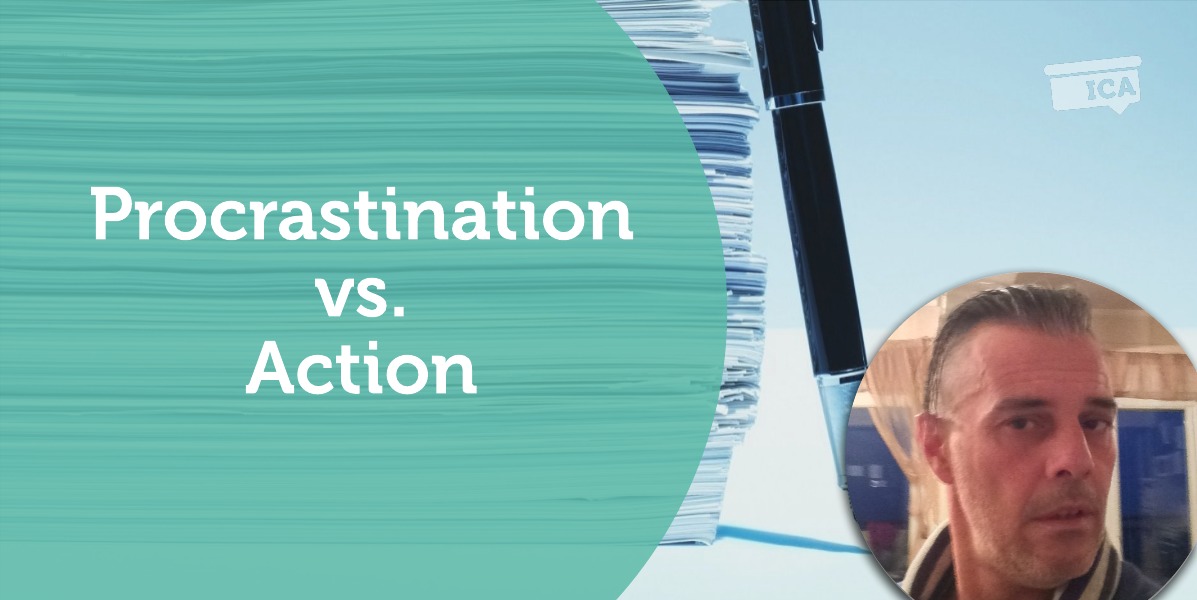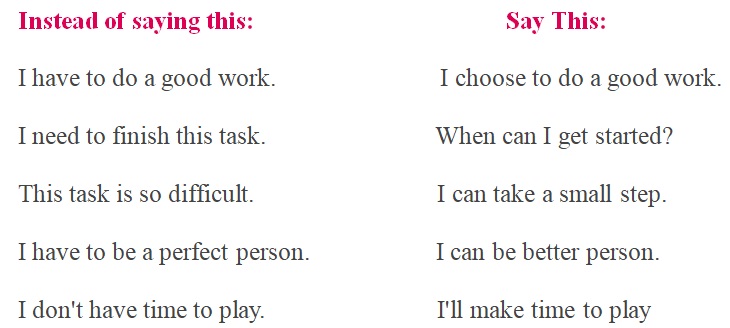 A Coaching Power Tool Created by Ioannis Asimakis
A Coaching Power Tool Created by Ioannis Asimakis
(Life Coach, NORWAY)
 Procrastination leads us to believe that we have countless hours at our disposal but ultimately steals them.
Procrastination leads us to believe that we have countless hours at our disposal but ultimately steals them.
Procrastination offers an illusion of freedom. It makes us believe that we have countless hours at our disposal but in the end, steals them. We are charmed by the promise of a carefree game but all it offers is a ‘Dark Playground’. This playground has the same fun activities as the real playground but if you shouldn’t be there, the experience is loaded with guilt and worry.
The person who has the habit of procrastination has a false sense of security. It feels optimistic that everything is under control, so there is plenty of time for laziness. It often underestimates the time it takes to complete an obligation, e.g. calculates that it will take 30 minutes and takes 2 hours to complete. This is why procrastination resembles a credit card: its use is easy and fun at first but then comes the bill with interest and the repayment is done with feelings of fear, anxiety, and dislike for ourselves.
However, it is difficult to stop the habit of inactivity because it is self-powered. Unfortunately, the cost of procrastination is not only a waste of time but also a reinforcement of the mistaken belief that the work we need to do can only be unpleasant. Also, the person, can not develop important skills such as planning, organizing, developing thinking, and attention to detail.
The treatment for this problem is difficult because procrastination is an attempt to tackle deeper problems that we may not even realize, such as anger, perfectionism, and self-doubt. Usually, procrastination temporarily removes the stress associated with these problems, the deepest causes remain.
The deeper problems of procrastination
Anger
The most common cause of procrastination is anger. Teenagers who disagree with the authority of parents and teachers may retaliate by delaying their lessons. For teenagers who feel powerless, an open revolution is not an option, because the consequences will be great and teenagers want to succeed. This form of revenge is manipulative and passive-aggressive but also very effective because it deprives people who have authority over the teenager their power and drives them crazy. A teenager does not have to worry about sabotaging himself because he cares more about his autonomy than about his grades. When he wants to avoid obligations he says: You can’t tell me what to do. I’ll do my job when I’m ready.
Victimization
The person who has the habit of procrastination is trapped in a prison he built himself, he sees himself as the victim of those who set their expectations and makes decisions. He feels trapped in a situation he can’t win: Doing the job causes his uncomfortable feelings, and the same feelings avoiding the job. The “victim” approaches his job with the feeling that he has to do not want to do.
Self-doubt
Like many procrastination people, under the anger and indignation, they hide a boy suffering from self-doubt. People do not start to suddenly feel helpless. It takes many years to question their abilities and wonder if they can respond.
Procrastination people often performed better at school when they were younger. But when the school became more difficult (as always) instead of increasing the effort, they gave up because they thought that since school stopped being easy for them, it meant that they were not smart enough. Trying to get better was not an option, as it involved the likelihood of failure and then the revelation of their alleged inadequacy.
Perfectionism
A perfectionist can postpone starting a job because he is frightened by the huge effort he will need to do something perfectly. It will refer to work with words such as ‘owe’, ‘must’, ‘need’. Most perfectionists suffer from deep feelings of inadequacy.
His desire to do everything perfectly can conceal problems of self-esteem and self-confidence. High standards are very good, they help us set goals. Perfectionism starts when failure to live up to these expectations becomes unacceptable. The perfectionists who postpone doing things set unrealistic expectations and then avoid work to get rid of the stress it causes.
The job involves postponing the pleasure until it’s done and being able to cope with the stress and discomfort we feel when we learn something new. We can hear the low tolerance of a procrastination person when he says things like: this is not fair, it is very difficult.
Let’s look at some ways we can help our clients through the sessions to face up procrastination.
Addressing the justification
Let’s face it, procrastination persons are liars. They lie to themselves permanently about the time they will need to complete a task and that at some point they will have enough time to do it well.
To be able to stop lying to ourselves, we must first be able to recognize it. With the help of a coach, we can find arguments that will put off postponement. We can help our client without feeling that we do not trust him. With the right questions, we give him time to see the whole picture if any of his behaviors seem familiar:
Challenge the negative thoughts
Procrastination persons have a negative attitude towards work. Here are some negative thoughts they make and some positive thoughts they can replace:

How we can help the client discover the roots of procrastination
These are some questions that could help the client to see the whole picture
Challenge these real causes and overcome them decisively.
Other strategies
As coaches, we must remember that we want to challenge commitment, not compliance.